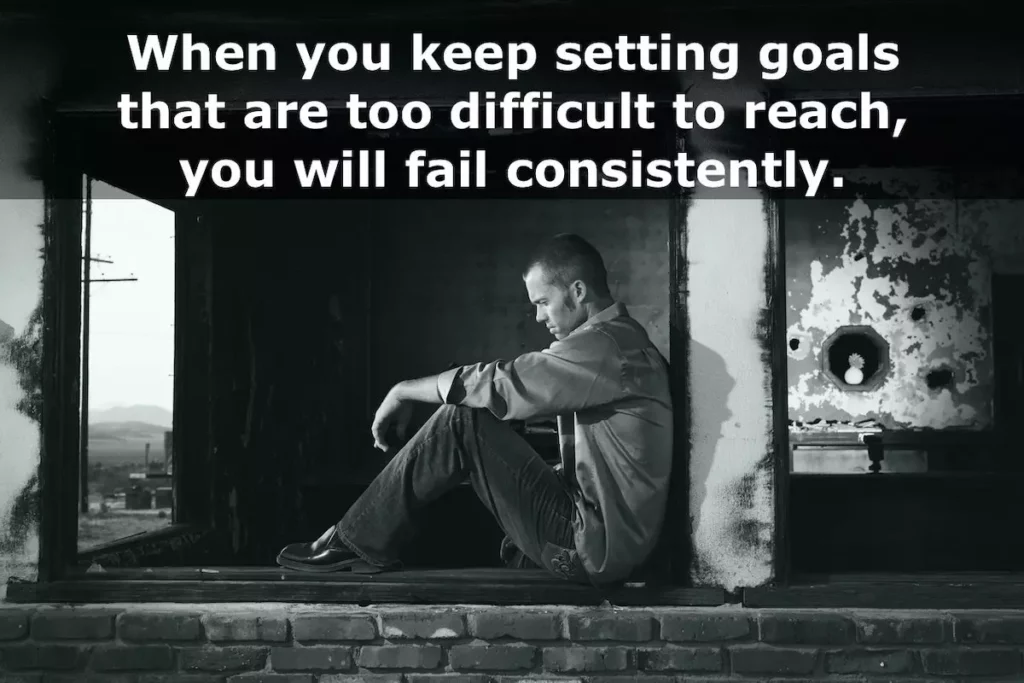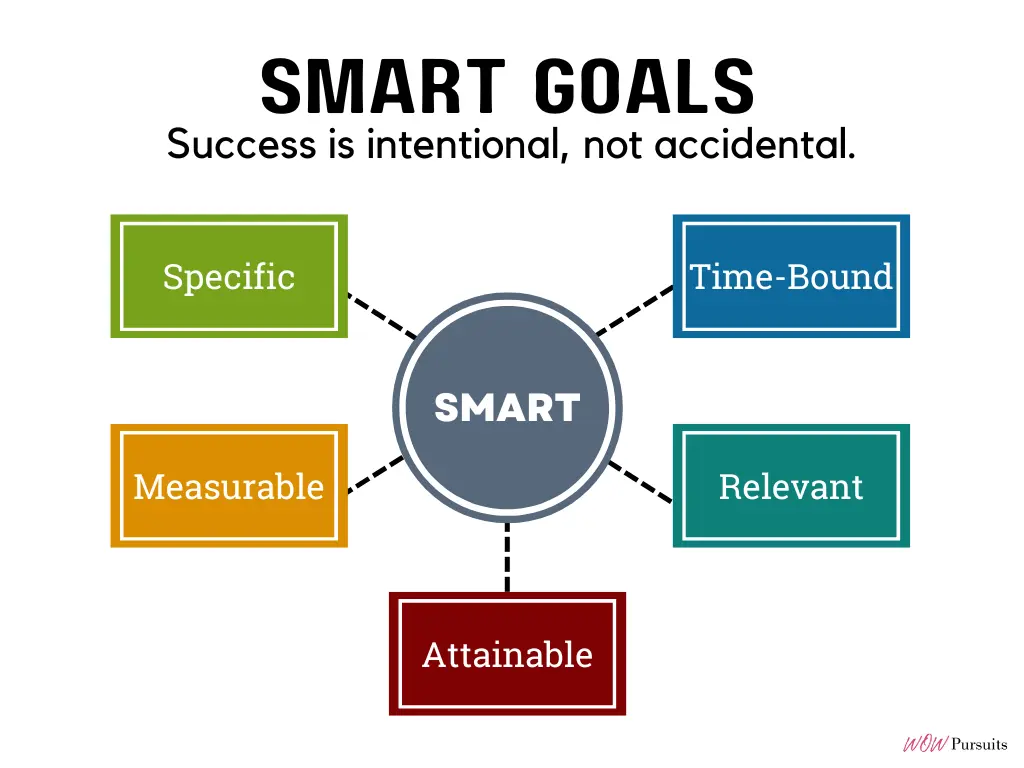Effective goal-setting is fundamental to achieving success in life. Without clear goals, it’s hard to stay motivated and on track. When setting goals, you should consider your passion and make sure that your goals are SMART — specific, measurable, attainable, relevant and time-bound.
I tutored my nephew in English for two years. One day, out of the blue, he asked me, ‘Auntie, do you think I can get A1 for the O-level exam? My teacher said that everyone can achieve A1 if we work hard for it.’ (By ‘everyone’, his teacher meant the entire class of 40 students.)
Not the kind to mince words, I replied him straight out, ‘The answer is NO and I think your teacher needs a reality check. The exam is less than four months away and you’re currently a C5. A1 is a four-grade jump. Considering your English standard and the short time frame, it’s simply impossible even with divine intervention. You can aim for it all you want but you won’t achieve it.’
If you think I’m a dream killer, I’m afraid you’ve misunderstood me. I happen to be a strong proponent of goal-setting. However, goals must be realistic. As much as I love to fantasise and let my imagination run wild, I believe in retaining a practical awareness of my abilities and circumstances.
Telling 40 students of varying abilities to aim for the sky is hardly motivational or empowering. It’s unrealistic and we all know what unrealistic goals are — PIPE DREAMS.
The same applies to setting financial goals. What if I told you that everyone, regardless of his or her current net worth, can achieve financial freedom in three years? Would you tell me that I’m full of shit? Exactly! Everyone is different and our financial goals must align with our life circumstances and money values.
If you feel that you’re stuck in a rut and unable to make progress with your goals, perhaps it’s time to rethink your approach. With the right strategies and mindset, you can create a plan that will help you reach your goals and make positive changes in your life.
This article covers:
- The Importance of Goal-setting
- The Dangers of Setting Unrealistic Goals
- Five Tips for Setting Realistic Goals
1. The Importance of Goal-setting
Let’s begin by taking some time to consider the importance of goal-setting. Why is there a need to set goals in first place?
Goals Give You Direction
When you set goals, you’re essentially taking control of your life’s direction and creating a roadmap for your future. You lead a purposeful life as you have a clear idea of what you want to accomplish.
For instance, Mr Wow and I had a goal to reach Financial Independence Retire Early (FIRE) in 10 years. To achieve that, we came up with a detailed plan and took a series of deliberate actions. Every financial decision we made was in line with our FIRE goal, which we eventually reached in 7 years. Our goal basically triggered new behaviours and helped us focus on things that mattered to us.

Goals Help You Stay Motivated
Goals give you something to strive for and help you stay motivated even when the going gets tough.
Professional athletes are marvellous examples. Losing is part and parcel of sports. It’s discouraging and it really sucks. On top of that, they have to cope with painful injuries. Nevertheless, most continue to push forward because they are motivated to win major championships. Just ask 22-time Grand Slam champion Rafael Nadal. What drives him every day?
Goals Lead to Personal Growth
Working towards a goal helps you develop new skills and gain a sense of accomplishment.
I’m a walking testament. Before pursuing FIRE, I was completely clueless about investing. I didn’t know how to invest in REITs. I didn’t know how to calculate dividend yield. Heck! I didn’t even know how to start a brokerage account. I’ve come a long way since and I’m proud of myself. My knowledge has boosted my confidence and helped me make well-informed decisions. And the more I learn, the more I want to improve myself.
Working towards a goal helps you develop new skills and gain a sense of accomplishment.
2. The Dangers of Setting Unrealistic Goals
Not all goals are beneficial though. Goals add value to your life only if they are realistic. Setting a goal to lose 5kg in a week is not only unrealistic, but also dangerous. It’s also unrealistic to aim for $100,000 in savings by the end of the year if you currently do not earn any income and have less than $1,000 in your bank account.
People who set unrealistic goals tend to focus on fancy hope rather than possibility. They often lack self-awareness and understanding of the situation they are in. Needless to say, there are a few negative outcomes. Some may give up halfway, only to move on to other unattainable goals. The cycle keeps repeating for them. Others may push themselves harder than they’re capable of and eventually suffer from burnout.
People who set unrealistic goals often lack self-awareness and understanding of the situation they are in.
When you keep setting goals that are too difficult to reach, you will fail consistently. Negative emotions such as disappointment and frustration are bound to set in. You lose confidence and feel like an underachiever.

3. Five Tips for Setting Realistic Goals
Hang on! That doesn’t mean you’re incapable of doing great things. You’re just not good at goal-setting. Here are five tips to help you set the right goals and achieve them to the best of your ability:
1️⃣ Consider Your Passion
‘Without passion, you don’t have energy. Without energy, you have nothing.’ — Warren Buffett
What inspires you? What are you enthusiastic and excited about? What would you do for free? It’s important to consider your passion when setting goals. If you’re interested in something, you’ll naturally be motivated and committed to achieving it in the long run. You’ll more likely put in the time and effort to hone your skills and strive for excellence. And the better you get, the closer you are to success. Thus, making sure that your goals align with your passion is key.
2️⃣ Involve Important People in Your Life
Are there people whom you should include in the goal-setting process? For instance, your spouse should be able to contribute his or her ideas as you are a team after all.
Telling people you trust (e.g. close friends, family members and mentors) also makes you more accountable and increases the likelihood that you will stick to your goals. These people may also be able to help you when you hit roadblocks. Even if they can’t offer you any assistance or advice, they can lend you a listening ear. A strong support system will help you stay motivated and focused on reaching your goals.
Telling people you trust makes you more accountable and increases the likelihood that you will stick to your goals.
3️⃣ Make Your Goals SMART
Many goals are ambitious and long-term. For example, a cafe owner may have a goal to expand his business to 20 outlets in 10 years. A decade is not exactly a short time. To stay on course, he should break his goal down into smaller SMART goals.

SMART goals are specific, measurable, attainable, relevant and time-bound. They provide structure and clarity and help you zero in on what you want to accomplish.
- Be specific: You should take some time to think about what you want to achieve and be as specific as possible. For instance, ‘I want to learn Spanish in the next five months by taking online classes and practising with native speakers’ is much more specific than ‘I want to learn Spanish.’
- Set measurable goals: Your goals should be measurable so that you can track your progress. Let’s say you’re an influencer and your goal is to increase online visibility. First, you’ll need to be specific by identifying the social media platforms you want to target, e.g. grow the number of YouTube subscribers. To make the goal measurable, you’ll need to set a target, e.g. grow the number of YouTube subscribers to 300,000 in half a year.
- Set attainable goals: It’s important to know yourself and set attainable goals so you don’t become demoralised. For example, if you’re a student and you’ve never passed chemistry in your life, it’s probably not realistic to aim for distinction in the upcoming exam. You need to stop the wishful thinking and aim for a pass first.
- Set relevant goals: Your goals should be relevant to your life circumstances. If you’re living pay cheque to pay cheque and struggling to make ends meet, it’s not realistic to set a goal to save $20,000 in one year.
- Set time-bound goals: It’s important to establish deadlines for all your goals, e.g. ‘I will increase my sales by 10% in the next three months.’ But do note that a deadline should be set based on the complexity of the task and the resources available to complete it. An unrealistically tight deadline for a difficult or time-consuming task not only causes stress, but also sets you up for failure. On the other hand, an extended deadline for a straightforward task is unproductive.
4️⃣ Develop an Action Plan
As SMART goals are clear and actionable, they form the basis of your action plan. You should write them down so that you can figure out how to achieve each and every one of them. What are the steps to take? What are the required resources? What are the potential obstacles and how will you address them? Take the time to plan and be as detailed as possible so as to increase your chances of success.
But of course, life is unpredictable, so be flexible and ready to adjust your plan along the way.
5️⃣ Have Fun and Celebrate Your Success
Lastly, life is all about the journey and what you experience along the way. As you plan and work hard for the future, remember to live in the present. The process is as important as the outcome, so enjoy it.
Every time you achieve a goal, have a little celebration. Take a day off or go for a nice dinner. Share your happiness with your loved ones and remember to thank those who helped you.

I hope reading this article will prompt you to set some SMART goals and take action to achieve them. Life is more interesting and fulfilling when you have goals to reach and dreams to pursue, don’t you think? Do leave us a comment.


